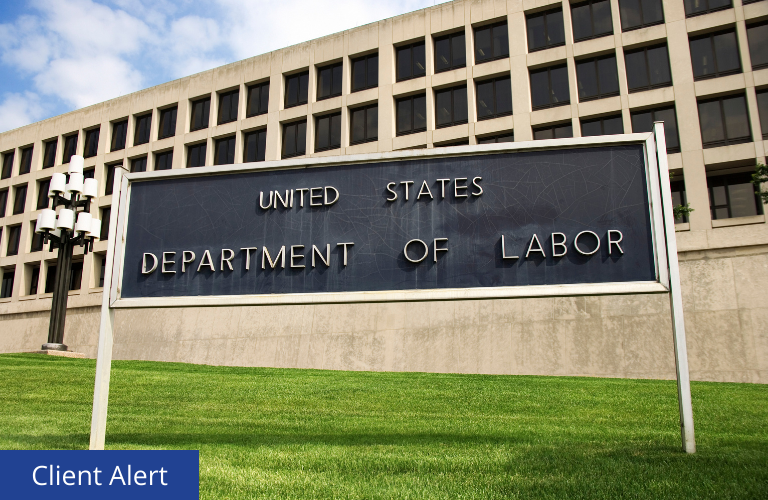
On October 31, 2023, the Department of Labor (the “DOL”) released the highly anticipated proposed rule (the “Proposed Fiduciary Rule”), which would redefine and expand the definition of “investment advice fiduciary” under the Employee Retirement Income Security Act of 1974 (“ERISA”).
New Definition of “Investment Advice Fiduciary”. The Proposed Rule provides that a person would be an investment advice fiduciary under ERISA if:
- The person giving the advice (the “Provider”) provides investment advice or makes an investment recommendation to a “retirement investor” (i.e., a plan, plan fiduciary, plan participant or beneficiary, IRA, IRA owner or beneficiary, or IRA fiduciary);
- That advice or recommendation is provided “for a fee or other compensation, direct or indirect”; and
- The Provider makes the recommendation in one of the following contexts:
- the Provider has discretion over investment decisions for the retirement investor;
- the Provider states that he, she, or it is acting as a fiduciary when making investment recommendations; or
- the Provider makes investment recommendations to investors on a regular basis as part of his, her or its business, and the recommendation is provided under circumstances that would indicate that (i) the recommendation is based on the retirement investor’s particular needs or circumstances, and (ii) the advice may be relied upon by the retirement investor as a basis for making investment decisions that are in the retirement investor’s best interest.
The Reason for the Proposed Change. The 1975 Test requires that the advisor’s advice be provided to the specific individual on a “regular basis” – so a one-time recommendation to make a rollover is not included. According to the DOL, the current five-part test from 1975 that is used to determine if an advisor is acting in a fiduciary capacity (the “1975 Test”) therefore is outdated and fails to address advice that is provided on a one-time basis. For example, the 1975 Test does not include advice given to a participant in an employer-sponsored 401(k) plan trying to decide whether to roll over his or her assets into an IRA or leave them in the 401(k) plan.
In the Proposed Fiduciary Rule, the DOL attempts to revise the “regular basis” requirement of the 1975 Test by expanding it to describe the Provider’s day-to-day business, rather than applying it to the relationship with the individual receiving the advice. This revision of “regular basis” would capture the one-time advice recommendations, such as rollovers into an IRA and annuity sales.
History of Proposed Changes. The DOL first attempted to revise the 1975 definition in its 2016 Final Fiduciary Rule (discussed here in a past Client Alert). However, the 2016 Rule was invalidated in 2018 by the Fifth Circuit when the court ruled that it was too broad and that the DOL overstepped its authority. In its Fact Sheet, the DOL attempts to differentiate the new Proposed Fiduciary Rule from the 2016 Rule by explaining that the Proposed Fiduciary Rule “is more narrowly tailored” and does “not impose any new contract or warranty requirements.”

